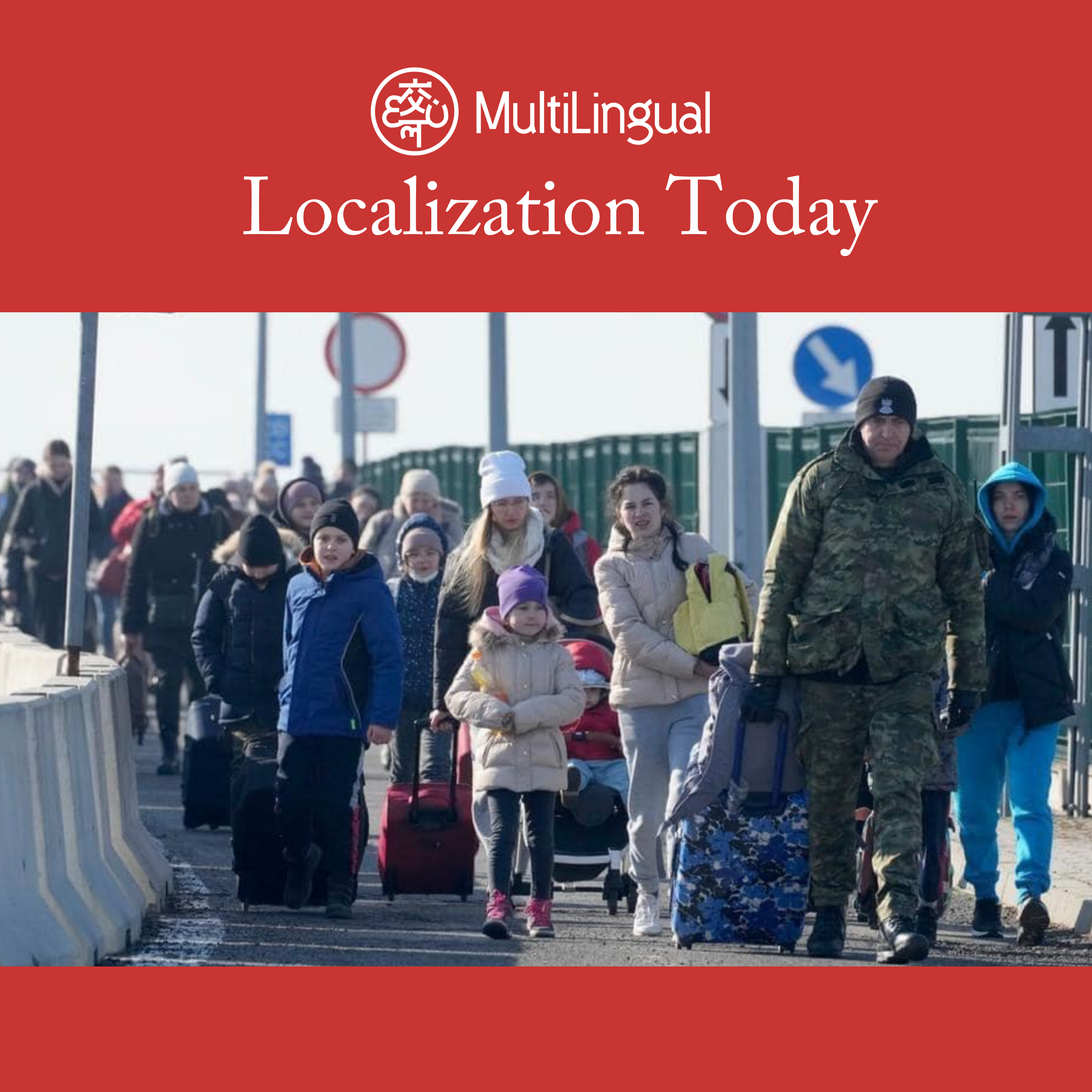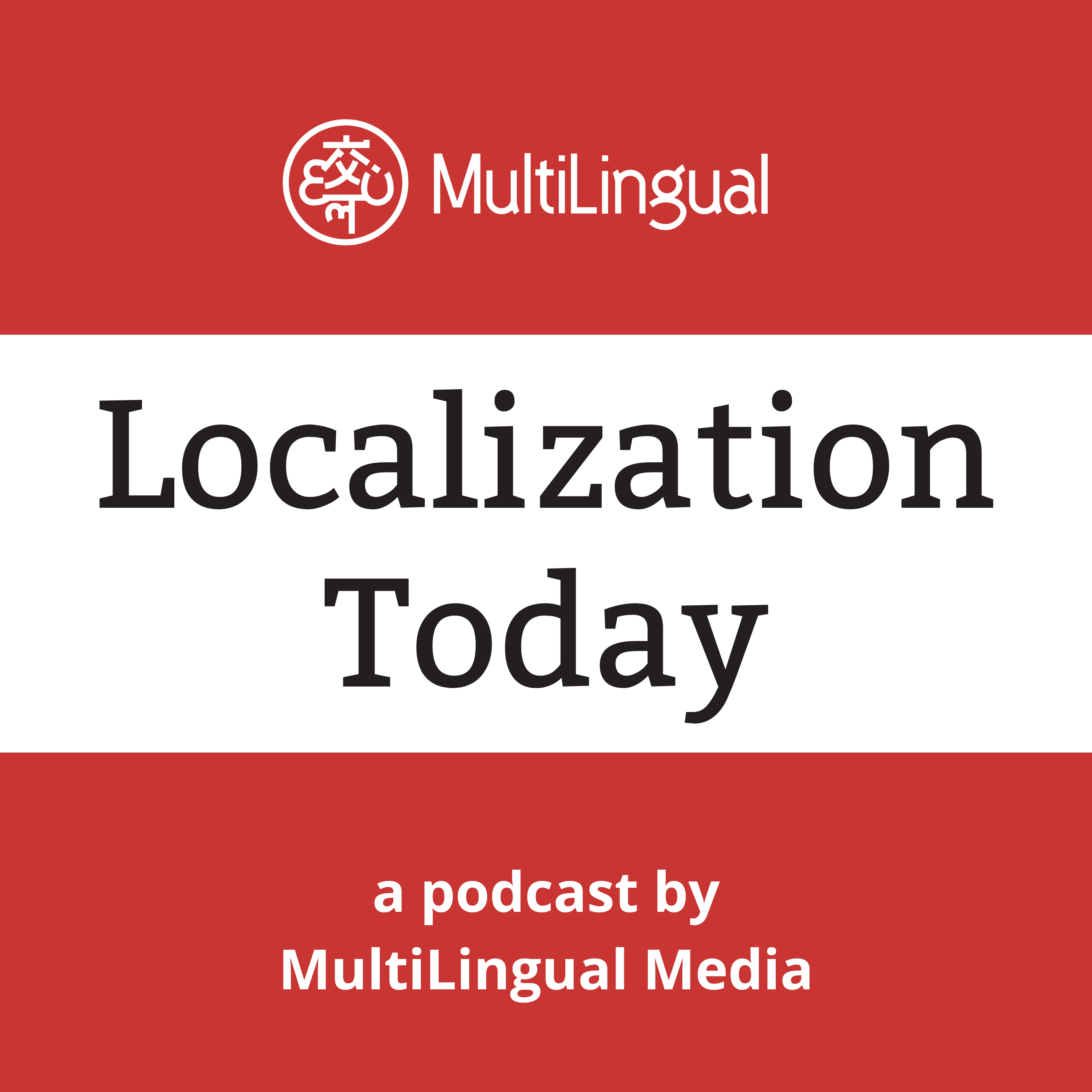Episode Transcript
[00:00:06] Speaker A: This is localization Today, a podcast from multilingual media covering the most relevant daily news in the language industry.
[00:00:15] Speaker B: Harnessing the language industry to confront climate.
[00:00:18] Speaker C: Change by Sultan Ghiznawi given the escalating urgency surrounding climate change, the release of.
[00:00:26] Speaker B: The United States governments fifth National Climate.
[00:00:29] Speaker C: Assessment report a few months ago offers.
[00:00:33] Speaker B: A comprehensive examination of the environmental shifts affecting the nation.
[00:00:38] Speaker C: Notably, it delves into the social consequences.
[00:00:41] Speaker D: Of these changes, shedding light on the.
[00:00:43] Speaker B: Disproportionate impact experienced by various demographic communities. The NCA emphasizes the pivotal role of social systems in both driving climate change.
[00:00:53] Speaker C: And shaping individuals perceptions of it. It advocates for climate justice through equitable.
[00:00:59] Speaker B: Processes such as migration and energy transitions.
[00:01:02] Speaker C: And it highlights the urgent need to.
[00:01:04] Speaker B: Accelerate both adaptation and mitigation efforts.
[00:01:07] Speaker C: Additionally, it underscores the significance of locally.
[00:01:11] Speaker B: Grounded climate action for sustainable development and national security.
[00:01:16] Speaker D: Amidst this intricate tapestry of challenges, the.
[00:01:19] Speaker B: Language industry emerges as a formidable ally in raising awareness and facilitating targeted adaptation efforts.
[00:01:26] Speaker C: Comprising translation, localization, interpreting, and related services, our industry possesses a global reach uniquely.
[00:01:34] Speaker B: Positioned to disseminate vital messages and instigate behavioral shifts.
[00:01:38] Speaker D: Climate change, fundamentally rooted in human activities.
[00:01:42] Speaker C: Manifests in diverse and localized ways across the globe.
[00:01:46] Speaker D: In remote parts of the world, communities.
[00:01:48] Speaker B: Grapple with the tangible impacts of climate.
[00:01:51] Speaker C: Change on their lands, seas, and forests.
[00:01:54] Speaker D: These areas often bear the brunt of.
[00:01:56] Speaker B: Environmental shifts, exacerbating existing vulnerabilities and disrupting.
[00:02:01] Speaker D: Traditional ways of life.
[00:02:03] Speaker B: Remote communities reliant on agriculture or pastoralism.
[00:02:07] Speaker C: Face increasingly unpredictable weather patterns, leading to.
[00:02:10] Speaker D: Crop failures, soil degradation, and water scarcity.
[00:02:15] Speaker B: In regions like sub saharan Africa and.
[00:02:17] Speaker C: Parts of South Asia, prolonged droughts devastate crops, leading to food insecurity and economic.
[00:02:23] Speaker B: Hardship for local communities.
[00:02:25] Speaker C: Coastal communities, particularly in small island nations, confront rising sea levels and more frequent and severe storms. Erosion eats away at shorelines, displacing populations and endangering vital infrastructure.
[00:02:39] Speaker D: In the Pacific islands, for instance, communities.
[00:02:42] Speaker B: Are forced to relocate due to encroaching.
[00:02:44] Speaker C: Seawater, threatening their cultural heritage, and more.
[00:02:48] Speaker B: Indigenous peoples living in remote forested areas.
[00:02:51] Speaker C: Confront deforestation driven by logging, agriculture, and.
[00:02:55] Speaker B: Climate related factors like wildfires and insect infestations.
[00:03:00] Speaker C: In the Amazon rainforest, indigenous communities witnessed.
[00:03:03] Speaker B: The loss of biodiversity and traditional resources.
[00:03:06] Speaker C: Undermining their cultural identity and livelihoods.
[00:03:11] Speaker B: These examples underscore the urgent need for targeted climate action and support for remote communities to adapt and thrive in the.
[00:03:18] Speaker C: Face of environmental challenges.
[00:03:20] Speaker D: The language industry, with its capacity for communication and advocacy, can play a crucial.
[00:03:26] Speaker B: Role in amplifying their voices and facilitating meaningful change.
[00:03:30] Speaker D: The potential impact of the language industry is vast language service providers can implement.
[00:03:37] Speaker B: Climate related training programs for staff and.
[00:03:39] Speaker C: Freelancers while also adopting environmental, social, and governance policies to promote sustainable practices.
Freelancers, constituting a significant portion of the industry, can uniquely drive change through behavioral.
[00:03:55] Speaker B: Adjustments and community education.
[00:03:58] Speaker C: Of critical importance is the standardization of climate terminology across languages, which facilitates knowledge dissemination, especially in vulnerable communities. Lacking translation resources, multinational organizations bear a.
[00:04:12] Speaker B: Dual responsibility to communicate their environmental commitments.
[00:04:16] Speaker C: Across linguistic and cultural boundaries and to.
[00:04:19] Speaker B: Support localization partners in addressing climate related challenges.
[00:04:24] Speaker C: Moreover, as technology continues to shape the language sector, consideration of its environmental impact is paramount.
[00:04:31] Speaker B: While cloud based AI solutions offer efficiency.
[00:04:34] Speaker C: Gains, they also contribute to energy consumption and associated carbon emissions.
[00:04:40] Speaker B: Striking a balance between technological advancement and environmental stewardship remains imperative for the industry.
[00:04:47] Speaker C: The language industry occupies a central position.
[00:04:50] Speaker B: In global communication and holds immense potential to drive transformative action in the fight against climate change.
[00:04:57] Speaker D: By leveraging its reach, expertise, and innovative.
[00:05:01] Speaker C: Capacity, the industry can make significant strides toward building a more sustainable future for all.
This article was written by Sultan Ghaznawi, president of Hybrid Links, a canadian language and AI data services provider. He is also an ALC board member.
[00:05:19] Speaker D: And he is passionate about language, technology, climate change education, and improving quality of life.
[00:05:27] Speaker C: Originally published in multilingual magazine, issue 226, March 20, 2024.
[00:05:34] Speaker A: Thank you for listening to localization today. To subscribe to multilingual magazine, go to multilingual.com, subscribe.


